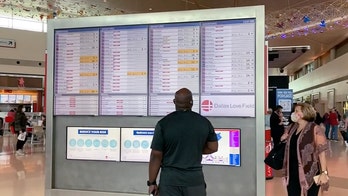The nation's universities are facing a crisis of campus protests over the Israel-Hamas war. Students are demanding divestment from companies supporting Israel's military efforts in Gaza, and some protests have turned violent. As leaders struggle to respond, Ronald Reagan's handling of similar unrest in the 1960s offers valuable lessons.

The crisis of college demonstrations and building occupations is not unique in our nation's history. While the subject of campus protests has differed over the years, each has started under the guise of "mostly peaceful protests." Unfortunately, 2024 protests have resulted in increasing levels of violence, threats against fellow students, and disruption of university functions.

In his 1966 campaign for California governor, Ronald Reagan was confronted with a similar dilemma - what to do with campuses out of control. Students across the state had disrupted the educational experience, leaving some universities in chaos. As a candidate, Reagan promised to "clean up the mess at Berkeley," referring to the unrest prevalent at the University of California, Berkeley, and college campuses throughout the state. Students and faculty were engaged in protests, demonstrations, and strikes related to issues such as the draft and civil rights.
His campaign for governor in 1966 provided Reagan's thoughts about protests spiraling into "rioting, with anarchy." He pointed to university administrators and faculty, who "press their particular value judgments" on students, leading to "a leadership gap and a morality and decency gap" on campus. Reagan suggested a code of conduct be imposed on faculty to "force them to serve as examples of good behavior and decency."

The events of 1969 provide insight into how Gov. Reagan would handle increasingly violent protests today. Students at the University of California, Berkeley, had been using a vacant plot of land for protests against the Vietnam War and decided to block the university from developing it. When the university attempted to erect a fence around the plot of land, thousands of students soon arrived to protest, with actions turning into a riot. Gov. Reagan ordered the Berkeley police and California Highway Patrol to restore order.
Following the initial conflict and to maintain order, Reagan declared a state of emergency and sent in 2,700 National Guard troops. He enacted a curfew and banned public assembly for two weeks. Order was restored as the National Guard patrolled the streets of Berkeley, dispersing any crowd of four or more.

In a press conference after the state of emergency, Reagan defended his actions, saying, "Those people told you for days in advance that if the university sought to go ahead with that construction, they were going to physically destroy the university." Someone in a press conference crowd shouted at Reagan, saying he should have negotiated with the students. The governor's response captured the lesson of the day: "Negotiate? What is to negotiate? All of it began the first time some of you who know better and are old enough to know better let young people think that they have the right to choose the laws they would obey as long as they were doing it in the name of social protest." Then Gov. Reagan walked out of the room.
Later in service as governor, Reagan was again confronted by campus violence following the Kent State shooting in May 1970. Faced with possible violence and demonstrations across the University of California system, Reagan closed the campuses for four days to allow citizens "to pause long enough to take inventory." His words of warning can serve as an example of what Reagan might do today.

"Lest there be any who would misread the meaning and purpose of this four-day period, let me assure you that any resort to violence or destruction, as illegal individual or mob action, will be dealt with - firmly and immediately. And those who engage in such acts will be fully exposed for who and what they are."
While it is impossible to know exactly what Reagan would do today, his actions gave us an example of leadership in the face of crisis. Reagan exposed the cause of the protests. He called out those responsible for the chaos. Reagan sent in the authorities and did not negotiate. He used the power of the police to restore order and follow through on warnings. Reagan held the offenders accountable. Authorities dealt with the offenders firmly and immediately.

Ronald Reagan gave us an example of leadership in the face of a crisis. Maybe it is time our leaders followed the example Reagan gave us.










